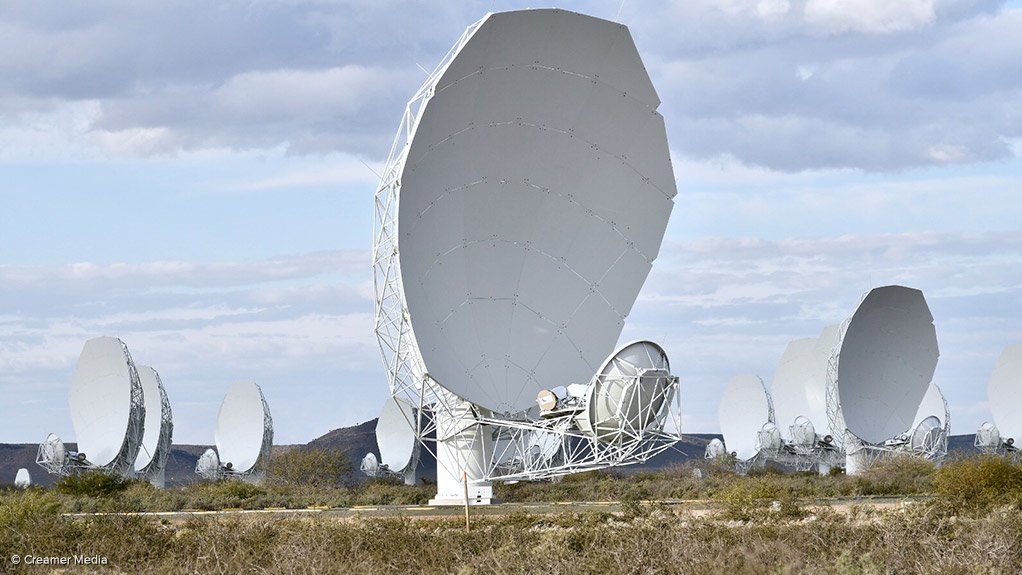MeerKAT radio telescope a beacon of technological development in South Africa
More than 260 scientific papers have so far been published, using data gathered by South Africa’s MeerKAT radio telescope array, with 40% of them being published in the past year, highlighted Higher Education, Science and Innovation Mininster Dr Blade Nzimande, in Stellenbosch, on Tuesday. “This is really very exciting,” he said, addressing the MeerKAT@5 conference, which was celebrating five years of operations by the radio telescope. MeerKAT is located in the Karoo region of the Northern Cape province.
He further pointed out that, in response to the South African Radio Astronomy Observatory’s (Sarao’s) latest call for proposals for observation time on the instrument, there had been 170 projects submitted. This number far exceeded the time available on the telescope. Of these proposals, about 25% were from research teams led by South Africans.
He also highlighted that the prestigious Royal Astronomical Society had given its 2023 Group Achievement Award to the MeerKAT team. (The Society was founded in 1820, in London, and is the oldest astronomical society in the world.)
Nzimande described MeerKAT as “a technological marvel” and described Tuesday’s event as “a moment of pride”. The instrument had already contributed to major astronomical discoveries and stood as a beacon of technological development in South Africa. And it had delivered more than had been expected of it.
The radio telescope embodied the spirit of scientific investigation and exploration, he affirmed. The experience of designing and building MeerKAT had placed South Africa at the forefront of radio astronomy in Africa and as one of the leaders in the world.
The MeerKAT programme had also stimulated skills development and training in South Africa. This had included a significant expansion in the number of South African astronomers. The construction of the telescope had also created job opportunities and the programme had had beneficial socioeconomic impacts on the communities surrounding its site.
The next phase of the MeerKAT telescope was now under way, he pointed out. This was a joint project (to expand the instrument) between Sarao and its German counterpart, the Max Planck Institute for Radio Astronomy.
Article Enquiry
Email Article
Save Article
Feedback
To advertise email advertising@creamermedia.co.za or click here
Press Office
Announcements
What's On
Subscribe to improve your user experience...
Option 1 (equivalent of R125 a month):
Receive a weekly copy of Creamer Media's Engineering News & Mining Weekly magazine
(print copy for those in South Africa and e-magazine for those outside of South Africa)
Receive daily email newsletters
Access to full search results
Access archive of magazine back copies
Access to Projects in Progress
Access to ONE Research Report of your choice in PDF format
Option 2 (equivalent of R375 a month):
All benefits from Option 1
PLUS
Access to Creamer Media's Research Channel Africa for ALL Research Reports, in PDF format, on various industrial and mining sectors
including Electricity; Water; Energy Transition; Hydrogen; Roads, Rail and Ports; Coal; Gold; Platinum; Battery Metals; etc.
Already a subscriber?
Forgotten your password?
Receive weekly copy of Creamer Media's Engineering News & Mining Weekly magazine (print copy for those in South Africa and e-magazine for those outside of South Africa)
➕
Recieve daily email newsletters
➕
Access to full search results
➕
Access archive of magazine back copies
➕
Access to Projects in Progress
➕
Access to ONE Research Report of your choice in PDF format
RESEARCH CHANNEL AFRICA
R4500 (equivalent of R375 a month)
SUBSCRIBEAll benefits from Option 1
➕
Access to Creamer Media's Research Channel Africa for ALL Research Reports on various industrial and mining sectors, in PDF format, including on:
Electricity
➕
Water
➕
Energy Transition
➕
Hydrogen
➕
Roads, Rail and Ports
➕
Coal
➕
Gold
➕
Platinum
➕
Battery Metals
➕
etc.
Receive all benefits from Option 1 or Option 2 delivered to numerous people at your company
➕
Multiple User names and Passwords for simultaneous log-ins
➕
Intranet integration access to all in your organisation





















